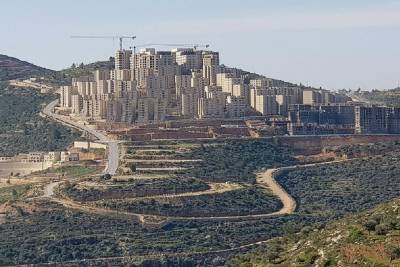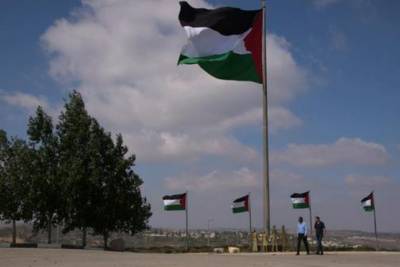U.N. Leader Urges Israelis and Palestinians to Resume Talks
The New York Times - ISABEL KERSHNER - JERUSALEM — The United Nations secretary general, Ban Ki-moon, urged Israel on Wednesday to refrain from further settlement construction and to offer good-will gestures to the Palestinians during a visit aimed at revitalizing the largely moribund peace process.
The secretary general said he hoped that the exploratory talks between Israeli and Palestinian officials that took place last month in Jordan, the first direct contacts in more than a year, could be sustained.
“Israel’s cooperation in creating a positive dynamic is vital,” Mr. Ban told reporters here after a meeting with President Shimon Peres.
The Palestinian president, Mahmoud Abbas, said last week that the discussions had ended in failure. But he left open the possibility of resuming contacts under certain conditions and after consultations with Arab League representatives later this week. Prime Minister Benjamin Netanyahu of Israel told his cabinet on Sunday that the signs of possible resumption were “not particularly good.”
Mr. Ban arrived in Israel the day after Mr. Netanyahu won three-quarters of the vote in a primary race in his conservative-leaning Likud Party, defeating a challenger from the far right and adding to his domestic strength.
“This is the moment to display further leadership to ensure that negotiations continue,” Mr. Ban told Mr. Netanyahu at a joint news conference.
Mr. Netanyahu thanked Mr. Ban for his “good intentions,” but he said the settlement question should be dealt with as part of a final agreement. “It cannot be a precondition to enter into that agreement,” he said.
Mr. Netanyahu also spoke with Secretary of State Hillary Rodham Clinton on Wednesday and told her that Israel was interested in continuing talks with the Palestinians while preserving Israel’s security interests, according to a statement from the prime minister’s office.
Israel has been calling for direct negotiations without preconditions. The Palestinians have demanded a freeze in Israeli settlement construction and an Israeli acceptance of the pre-1967 lines as the basis for negotiations on the borders of a Palestinian state.
The five meetings in January ended on an acrimonious note after the Palestinian envoy refused to allow an Israeli military official to outline Israel’s security requirements and the Israeli envoy offered a vague, verbal formula on territorial issues that would have existing settlement blocs becoming part of Israel, a stance the Palestinians rejected as unacceptable.
The Palestinians say they have already presented detailed, written proposals on borders and security to the so-called quartet of Middle East peacemakers: the United States, the European Union, the United Nations and Russia. Mr. Ban said he hoped that Israel would yet submit its own “concrete proposals on territory and security.”
Mr. Ban came to Jerusalem from Jordan, where he met King Abdullah II and other officials. After meeting with Israeli leaders he headed for the West Bank, where he toured Rawabi, an ambitious city under construction that is the Palestinians’ first planned municipality. Later he met with Mr. Abbas and other officials in Ramallah. Mr. Abbas told reporters after his meeting with Mr. Ban that the Palestinians rejected any further Israeli settlement construction and “would not accept it today or tomorrow.”
Mr. Ban’s influence on the Israelis is debatable. Israel has long regarded the United Nations with suspicion, considering many of its bodies as biased against it, including the General Assembly, which has a record of passing resolutions that the Israelis consider one-sided, and the Human Rights Council, which has been intensely critical of Israel.
“This is an organization that is sometimes perceived here as a theater of the absurd,” Ron Prosor, Israel’s ambassador to the United Nations, wrote in an op-ed piece in the Yediot Aharonot newspaper on Wednesday. “An organization that maintains silence with regard to the true problems pertaining to world peace and security — Syria, Iran, the events in the Arab world — while obsessively dealing with every municipal building permit issued by Israel.”
An Israeli official who was not authorized to speak publicly about the issue said Israel was “ready for mutual confidence-building measures in the framework of a peace process that is moving forward” — in other words, as long as the measures came with guarantees that the Palestinians would stick with the talks. He would not specify what steps they might include.
Another Israeli official said that in a closed meeting with Mr. Peres, Mr. Ban suggested that Israel, as the stronger party, should release Palestinian prisoners as one way of improving the atmosphere.
Underscoring Israel’s security concerns, Palestinian militants fired several rockets from Gaza into southern Israel on Wednesday evening. The rockets set off alarms in border communities but landed in open areas, causing no injury or damage.
To view original article, Click Here.



